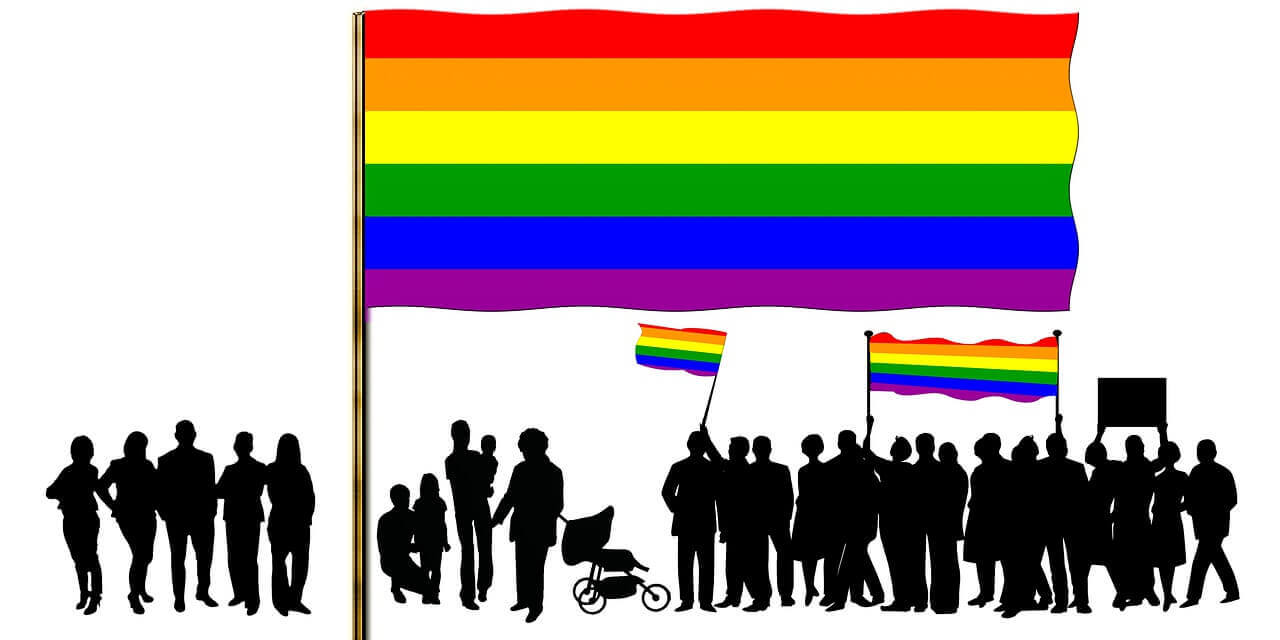Thailand has a long history of acceptance and visibility of gender non-conforming individuals, and the term “kathoey” is often used to refer to them. The term “kathoey” has been used in Thailand for centuries, and is often translated as “transgender,” “transsexual,” or “effeminate gay man.” However, the term kathoey is not specific to transgender people, but also includes gay and effeminate men, as well as cross-dressing actors and comedians in traditional Thai theater.
In the past, kathoey were often respected members of society, seen as having spiritual or supernatural abilities. They were also often accepted in traditional roles such as hairdressers, makeup artists, and fashion designers. Kathoey was also a common sight in entertainment venues such as cabarets and transvestite shows.
Discrimination and marginalization
However, as Thailand modernized and Western ideas about gender and sexuality were introduced, attitudes towards kathoey started to shift. Discrimination and marginalization increased, and many kathoeys were forced to take on low-paying jobs such as sex work. In recent years, there has been some progress in terms of legal rights and societal acceptance, but discrimination and marginalization still persist. This can lead to a variety of challenges, including discrimination in the workplace, in education, and in accessing healthcare. Many transgender people in Thailand feel pressure to conform to societal expectations of gender roles, and may resort to hormone therapy and/or surgery to do so.
It is difficult to determine the exact number of transgender individuals in Thailand. However, according to a 2017 study by the United Nations Development Programme (UNDP), it is estimated that around 1% of Thailand’s population identifies as transgender. However, it’s important to note that this is an estimate and the number might be different since not everyone who identifies as transgender may come out publicly. Furthermore, due to limited data collection and a lack of legal recognition of gender identity, a lot of transgender people are not included in many official statistics and might have been misclassified as cisgender, which makes it harder to give a precise number.
Societal expectations
In recent years, the Thai government has taken steps to improve the legal rights of transgender individuals. For example, in 2019, Thailand’s Constitutional Court ruled that transgender individuals have the right to change their gender on official documents. Also, in 2020, The ministry of defense issued a directive allowing transgender people to join the military. However, acceptance in society still has a long way to go, as many transgender people still face barriers in areas such as housing, education, and employment.
It’s important to note that the history and experiences of kathoey in Thailand can vary widely depending on factors such as socioeconomic status, regional location, and individual identity. Additionally, it’s important to remember that not all transgender individuals in Thailand will identify as kathoey, and not all kathoey will identify as transgender. The concept and the identity of a kathoey or a transgender person are complex, multi-faceted, and continuously evolving.
Activism and advocacy
Activism and advocacy for transgender rights in Thailand have been growing in recent years, with various groups and organizations working to improve the lives of transgender individuals.
One of the main goals of these groups is to promote legal rights and protections for transgender people. This includes efforts to change official documents to reflect the correct gender identity, as well as working to pass anti-discrimination laws that would protect transgender people in areas such as housing, education, and employment.
Many of these organizations also provide support services, such as counseling and healthcare, to transgender individuals. These services can be particularly important for transgender people who face discrimination and marginalization and are at a higher risk of poverty and unemployment.
Advocacy groups are also working to increase awareness and understanding of transgender issues in Thai society. This includes educating the public about the realities of transgender people’s lives, as well as promoting acceptance and respect for transgender individuals.
Many activists and organizations are pushing for the acceptance of the diversity of gender identity and expression, especially when it comes to the legal recognition of gender identity.
It’s important to note that the transgender rights movement in Thailand, like in many other countries, is led by transgender people themselves. Activism and advocacy by the transgender community have been crucial in bringing attention to the issues faced by transgender people in the country and pushing for change.
However, despite the progress that has been made, there is still a long way to go in terms of achieving true equality and acceptance for transgender individuals in Thailand. Discrimination and marginalization still persist and further efforts are needed to ensure that transgender people have the same rights and opportunities as cisgender people.
It’s important to use respectful and appropriate language when discussing or writing about transgender individuals in Thailand, or any place in the world. Avoid making assumptions, stereotypes, or slurs. Furthermore, It is important to note that not all kathoey or transgender individuals in Thailand will identify as such and it’s important to respect their self-identification and pronouns.








Have long heard the term Kathoey, now I have a far clearer understanding of the history and meaning of the term. Thank you for such an informative article.